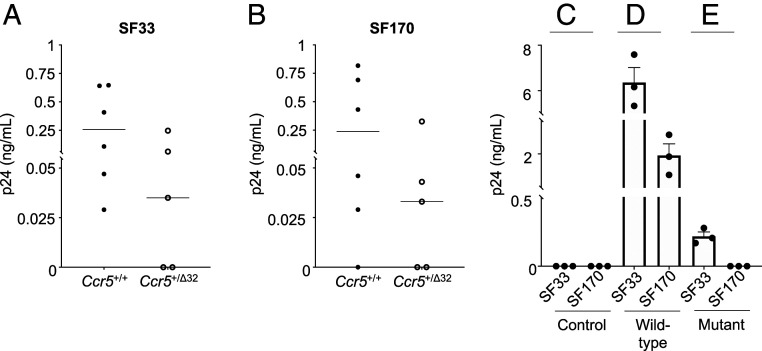Fig. 5.
In vitro HIV infection of PBMC harvested from NSG mice transplanted with Ccr5 wild-type and mutant CD34+ cells derived from genetically modified iPS cells. Virus replication in the HIV-inoculated PBMC harvested and pooled from up to three NSG mice was assessed by p24 antigen ELISA on the day 7 culture fluids following the second addition of stimulated CD4+ cells (Materials and Methods). When detected, virus replication in the HIV-inoculated cells ranged from low to high levels (0.029 to 7.58 ng/mL) of p24 antigen, depending on the relative number of HIV-sensitive human cells recovered from the mouse PBMC. The (A) X4-tropic (HIV-1SF33) and (B) R5-tropic (HIV-1SF170) isolates both replicated in human cells obtained from mice transplanted with the Ccr5+/+ (n = 6) or Ccr5+/Δ32 (n = 5) CD34+ cells derived from genetically modified iPS cells. (C) Virus replication was not detected in the HIV-inoculated control PBMCs of NSG mice that were not transplanted with human CD34+ cells (n = 6). X4-tropic (HIV-1SF33) and R5-tropic (HIV-1SF170) virus replication in the HIV-inoculated PBMC of NSG mice transplanted with (D) wild-type Ccr5+/+ (n = 6) or (E) mutant Ccr5Δ32/Δ32 (n = 6) CD34+ cells derived from genetically modified iPS cells. Resistance to R5-tropic virus replication was seen with the mutant cells.

